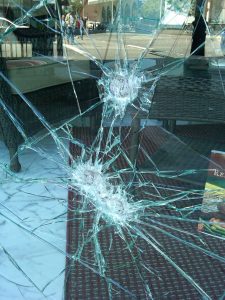Business continuity
This last week we had a small lesson in business continuity here at CDL. Our home is in Oakland, California, and our city was disturbed on Thursday by civil unrest (http://www.sfgate.com/cgi-bin/article.cgi?f=/c/a/2010/07/09/BAH61EBUBF.DTL).
The University of California Office of the President (UCOP) released employees early on Thursday and Friday as a measure of safety. On Thursday, the message read:
We have just learned that a verdict in the Johannes Mehserle trial will be announced within the next hour or two. To ensure your safety in the event of demonstrations or other civil unrest, UCOP employees may leave work now and work from home for the remainder of the day if they’d like. This is a precaution, but given the tensions surrounding this trial, it seems like a prudent one.

UCOP wasn’t alone in this precaution, with all of downtown Oakland emptying out. The BART platforms were mobbed and roadways jammed.
Those of you who have some familiarity with business continuity will recognize this scenario as the low end of business interruption, however disturbing it felt to us as we made our ways home, wondering how much damage was going to be done to the city later that afternoon or evening.
I say “low end” because we had over an hour of advance warning, and we were able to use a functioning public transportation system to travel to our homes. In addition, those of us who were prepared to work remotely, with laptops and VPN, were able to continue working, because the business disruption did not consist of damage to our server infrastructure.
At an even more basic level, UCOP management was able to send us an email message announcing the early release time!
In business continuity planning, the scenarios that really make you think creatively are those in which you can’t send an email message. The phones lines are down too. For serious planning, you have to assume that BART too is no longer running.
What would cause such a calamity, you might ask? Well, here in California, we have these things called earthquakes…
This past week, when we had everything working for us, the exodus was very orderly, if crowded. The exercise, if I can call it that, reminded me to think about whether or not we will be able to handle a more challenging disruption when it comes, as the scientists say it will.
Are you ready for the most likely disruptions in your location?
